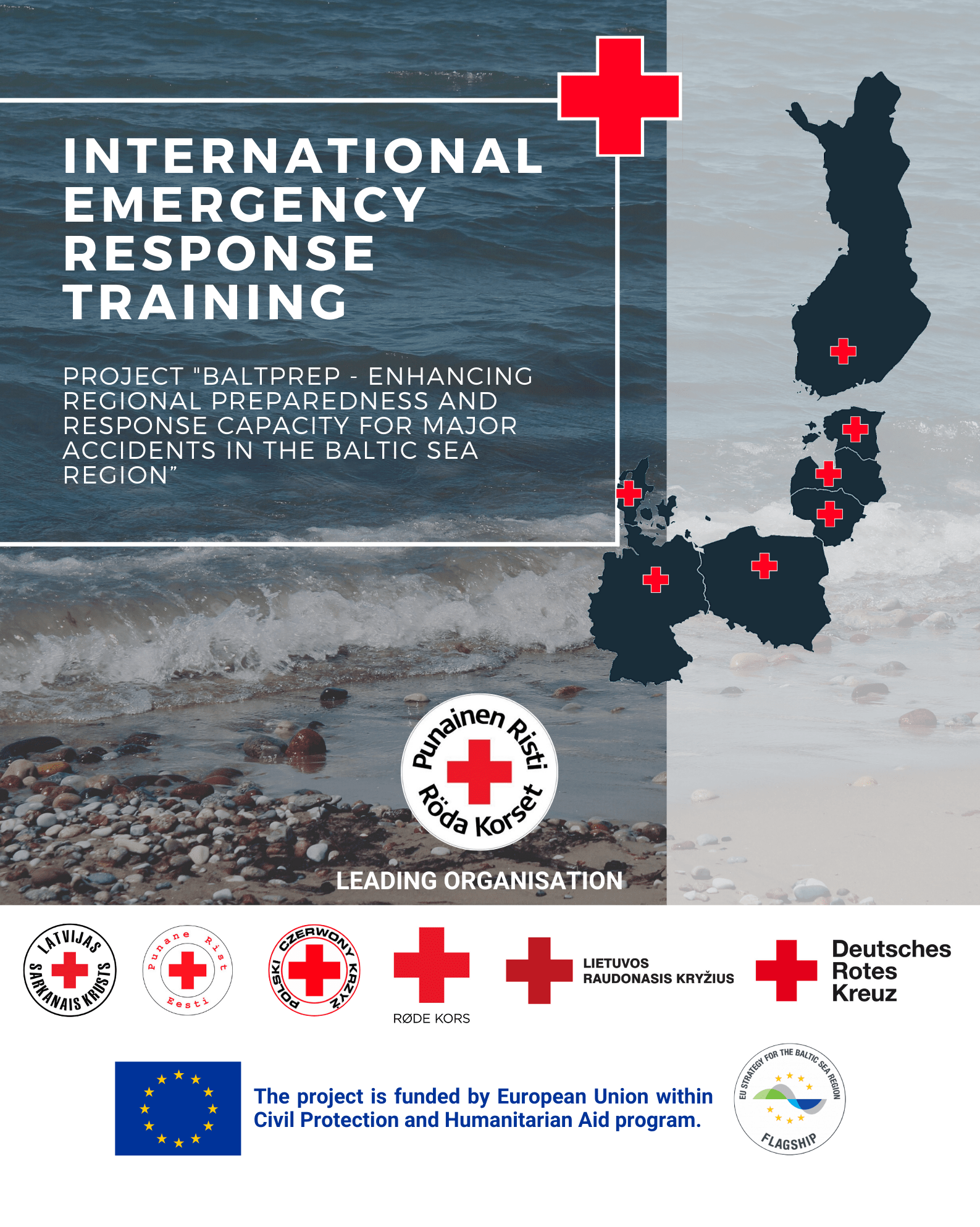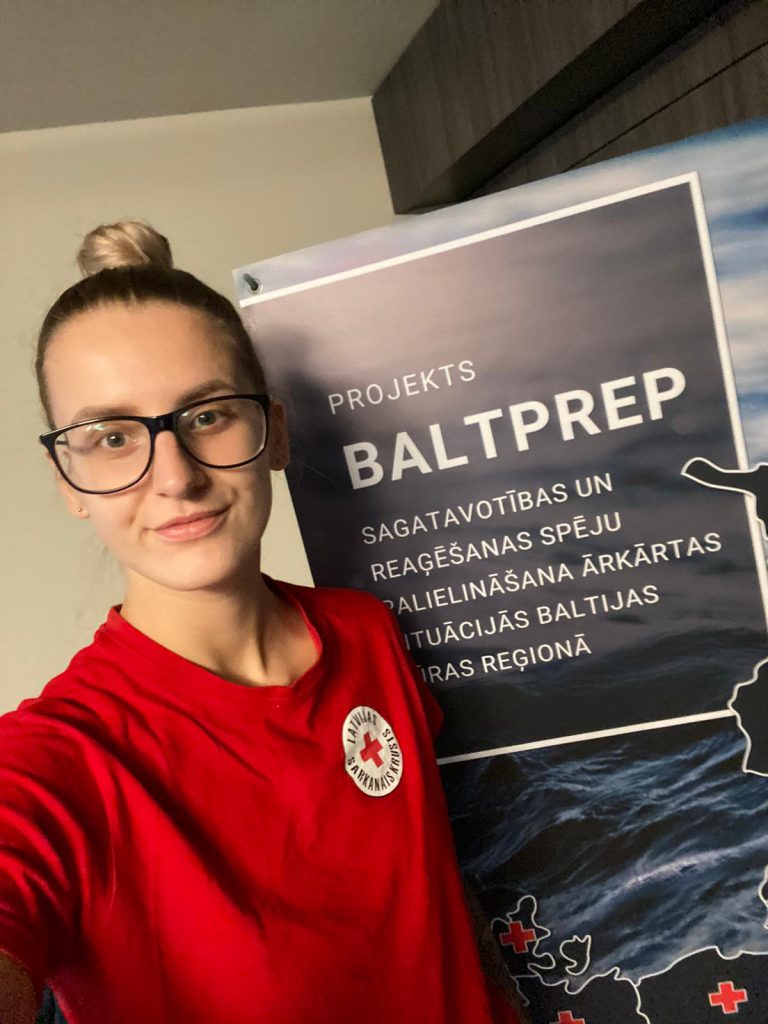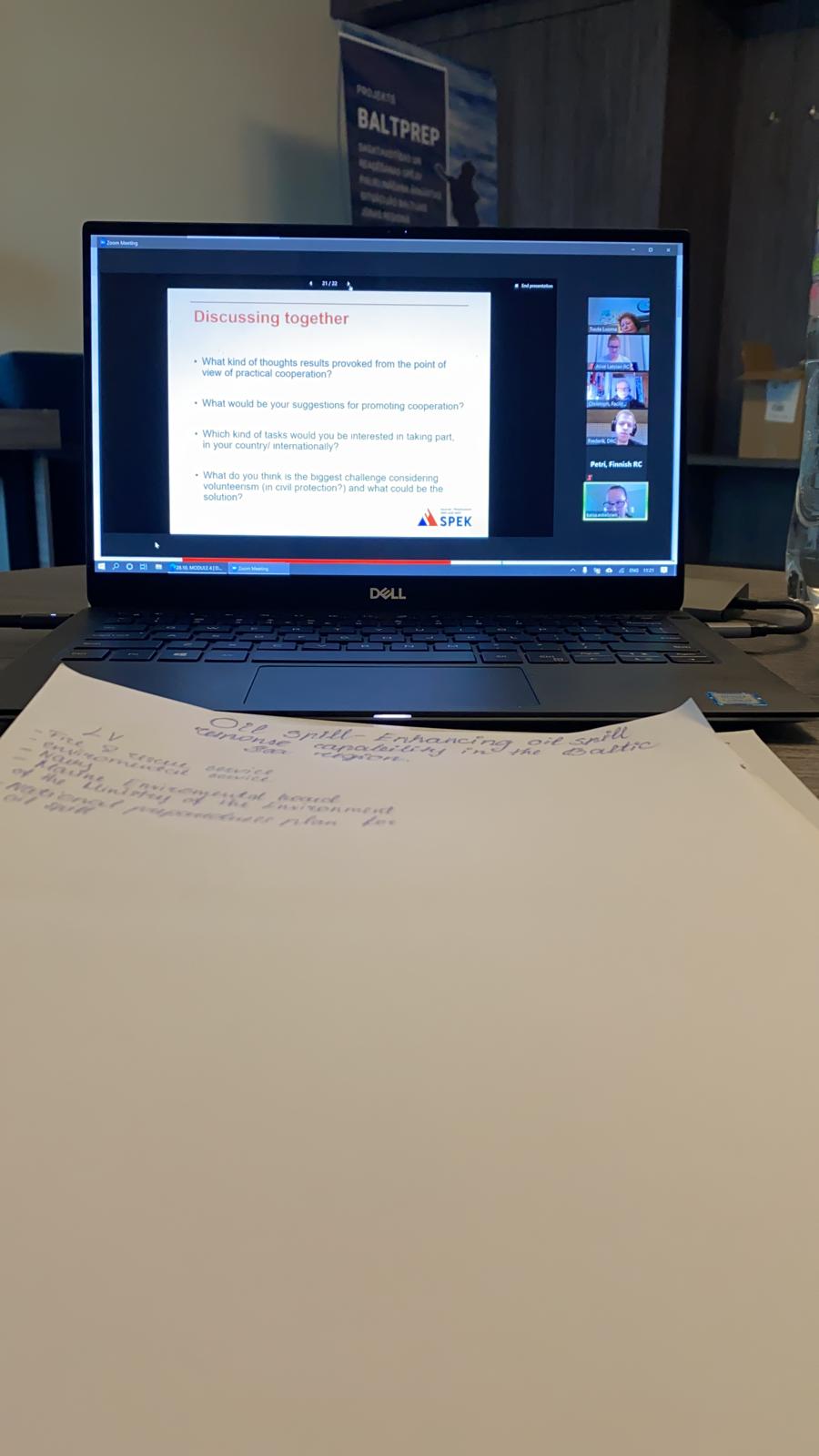
On 26 – 20 October, 2020, within the international project “BALTPREP – enhancing regional preparedness and response capacity for major accidents in the Baltic Sea region” representative of the Latvian Red Cross joined the Regional Disaster Management (RDM) training organised by Finnish Red Cross.
During four days of the training together with colleagues from Danish, Polish, Lithuanian, Estonian, Finnish, German and Russian Red Cross (RC) national societies (NS) such topics as Context of the Baltic Sea Region, Red Cross and national risk assessments, lessons learnt from large scale disasters, psychosocial support and others were studied and discussed. Also, participants learned about capacity and preparedness of each RS NS in terms of disasters.
Training also included discussions and exchange of experience regarding the NS collaboration with stakeholders and institutions, attraction of volunteers, preparedness to oil spill accidents and capacity of prevention of consequences.
Participants had opportunity to receive the information about the international experience of volunteer rescuer service as a corporation method in smaller to larger scale accidents.
In the closing day, the focus was a humanitarian aid provision mechanism of International Red Cross and Red Crescent national societies, including bilateral support mechanisms between RS NS in Baltic Sea region.
Participant ‘s reflections
Alise Jonāte
“The training gave an opportunity to learn about the level of disaster preparedness of our and other countries. It was a great possibility to look at real accidents and understand what is the role of Latvian Red Cross in terms of such disasters and what we can learn from them.
The training not only provided an opportunity to make new contacts and exchange experiences, but also to find a common and unified way of communication that is understandable to every member of the team.
To understand how to deal with such situations, it is necessary to understand what resources are available, the capacity of the Red Cross, as well as the situation in neighbouring countries to seek the necessary help if necessary.
Many different factors affect each situation and it is necessary to prepare in time to be able to react and provide the necessary support and assistance.
It is important not only to have resources and knowledge, but also be psychologically ready, as this is one of the most important supports in crisis situations.
This training is a big contribution to the development of each country’s Red Cross, as it allows us to understand both strengths and weaknesses, look for new approaches and look at each situation from a different angle, in order to respond as much as possible to the situation and assistance needed.”



